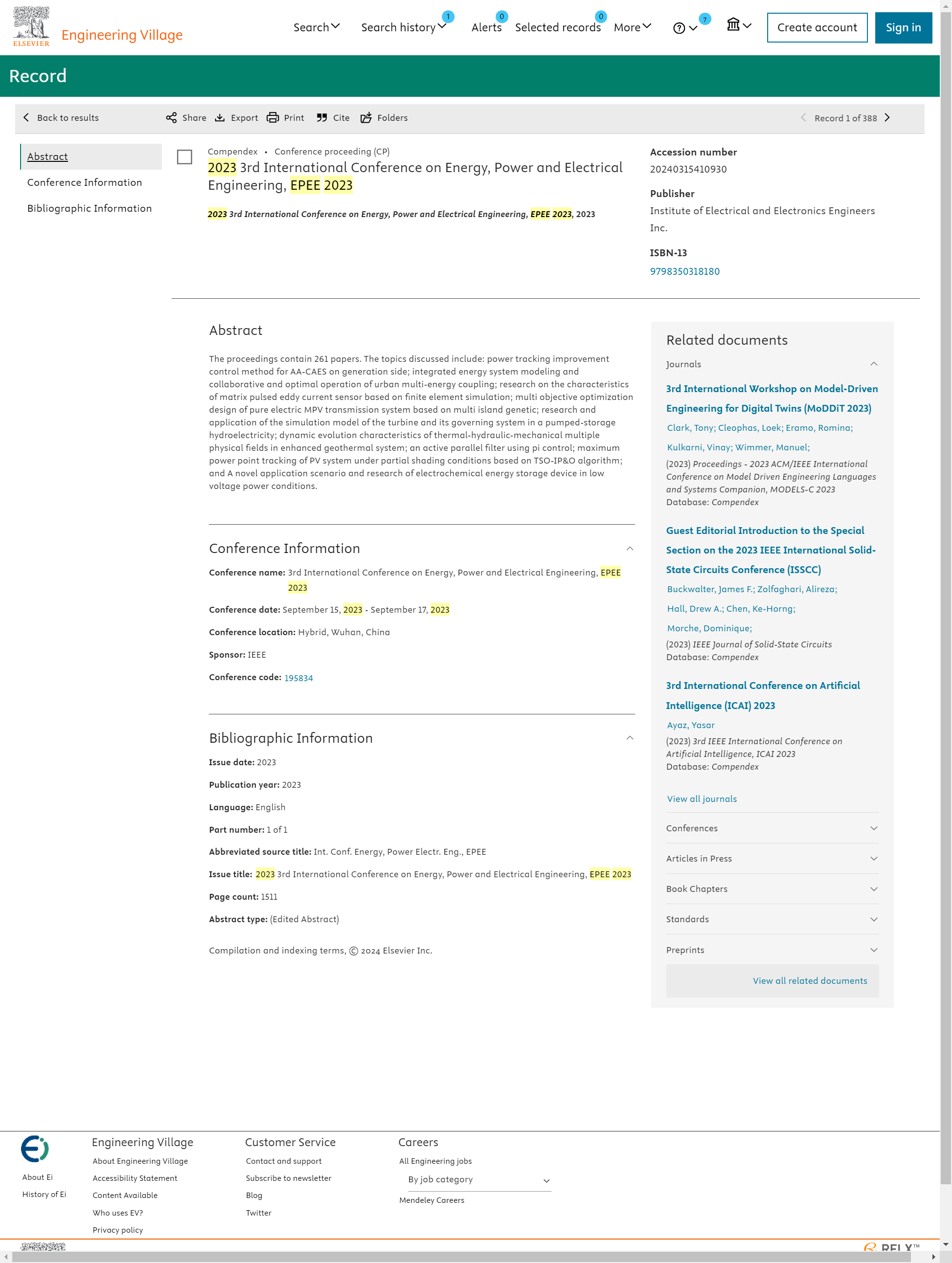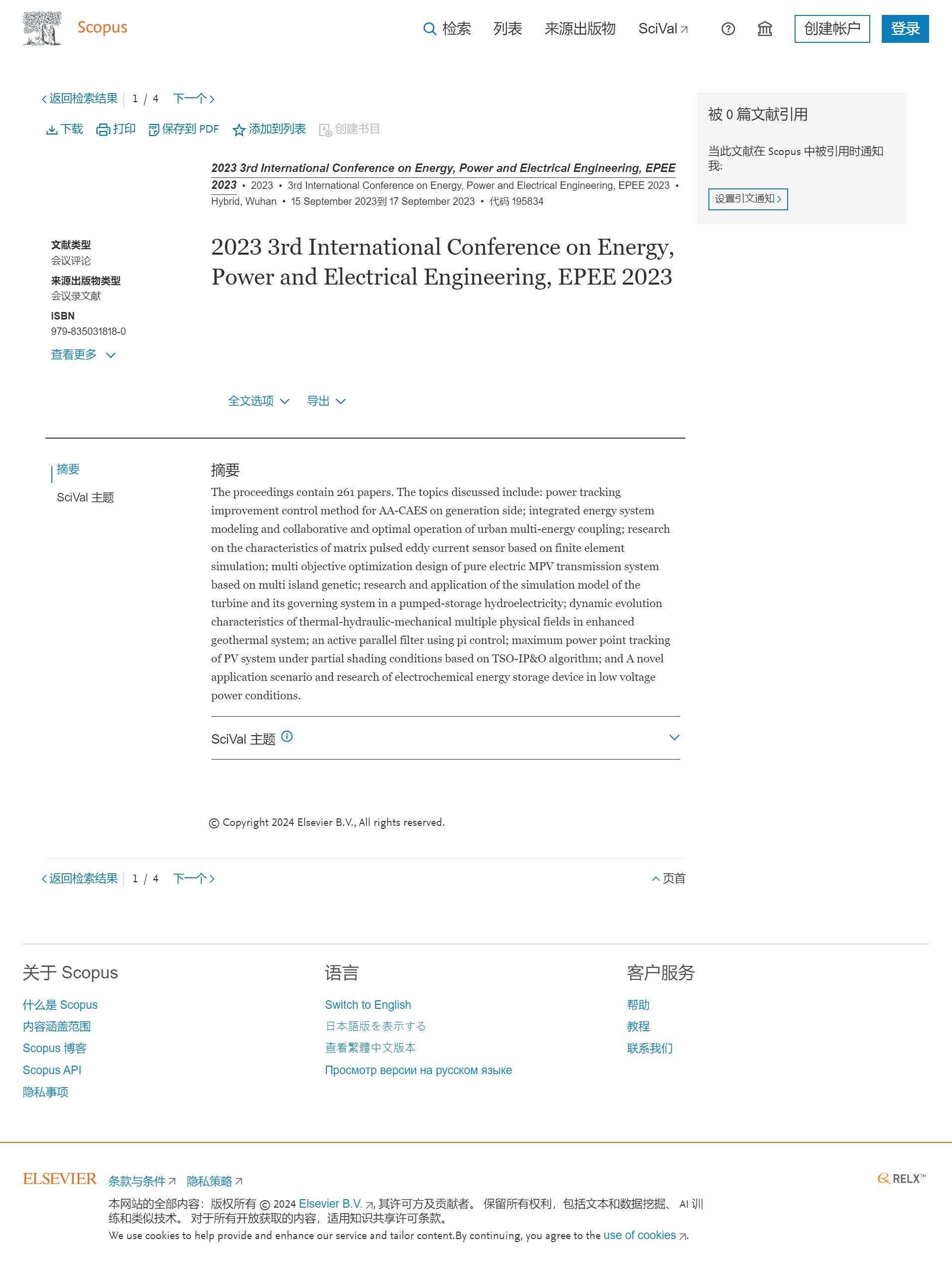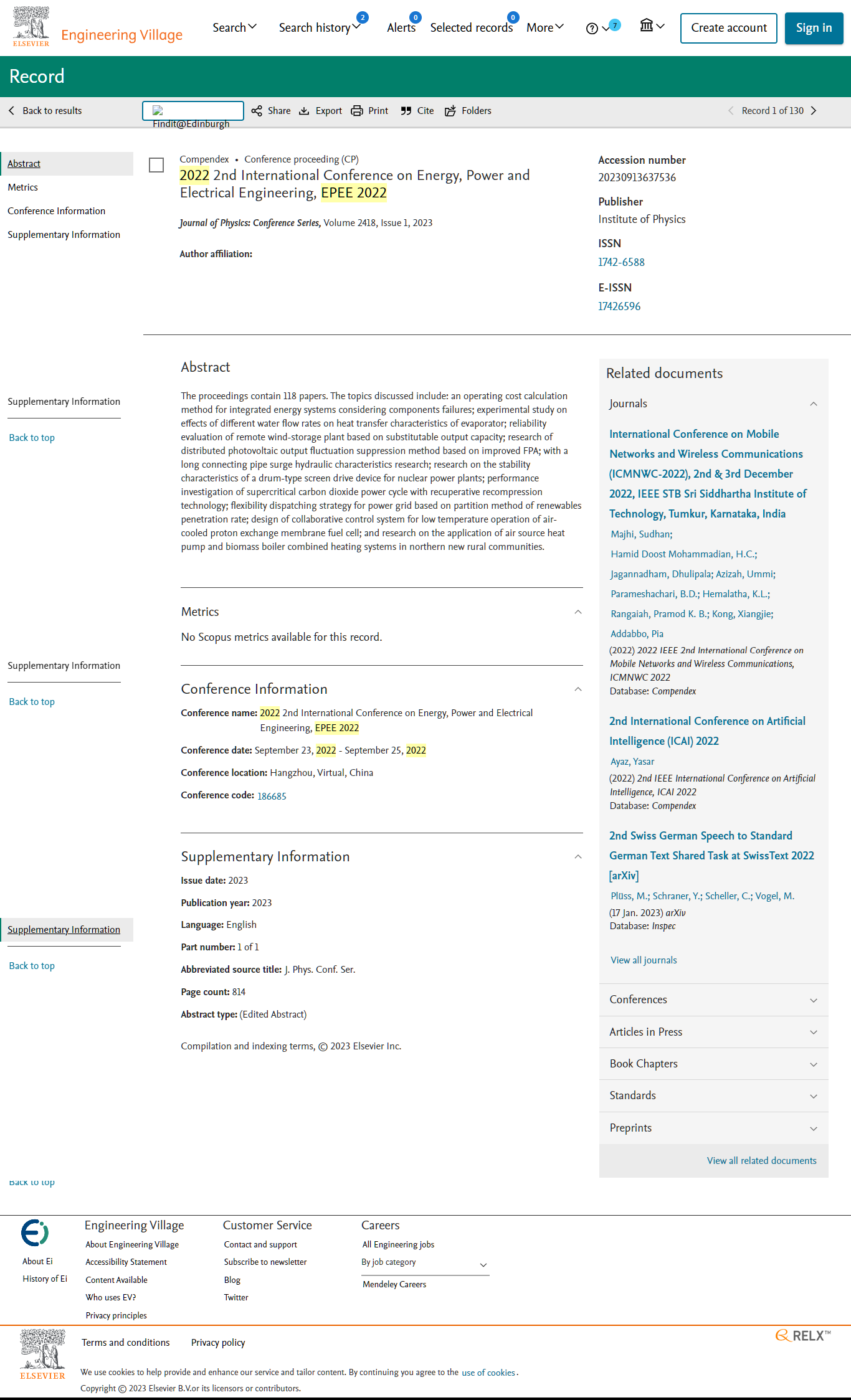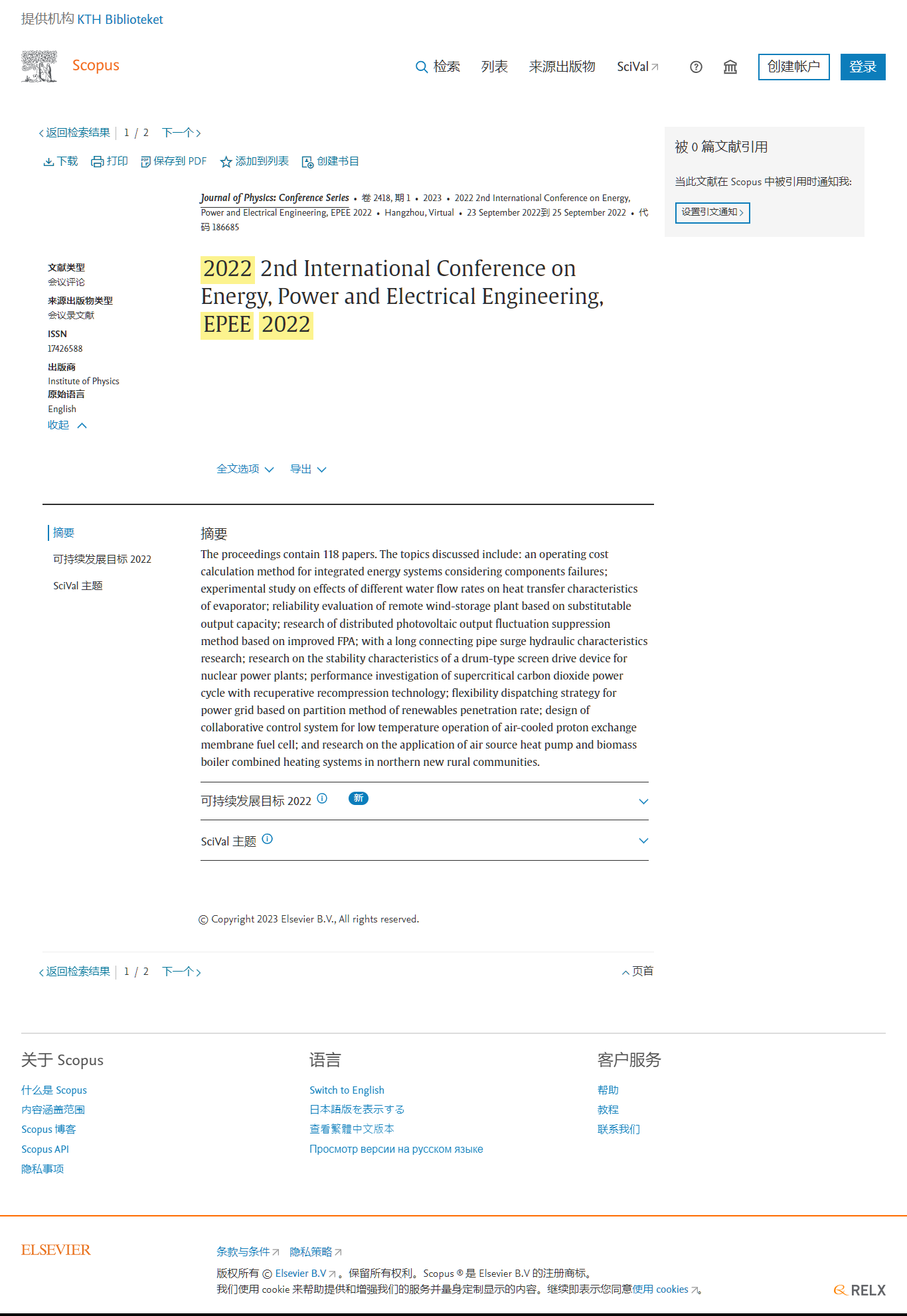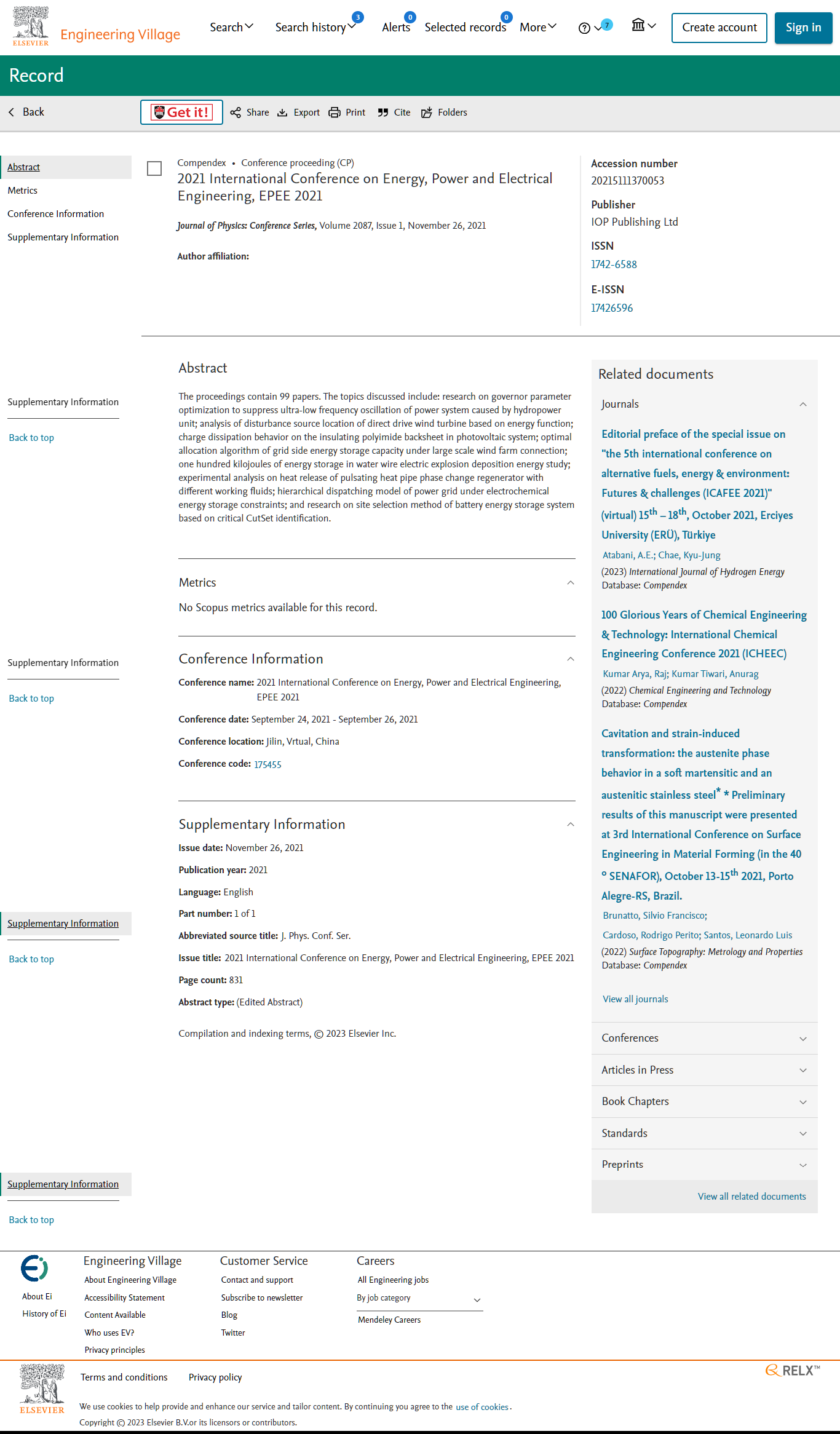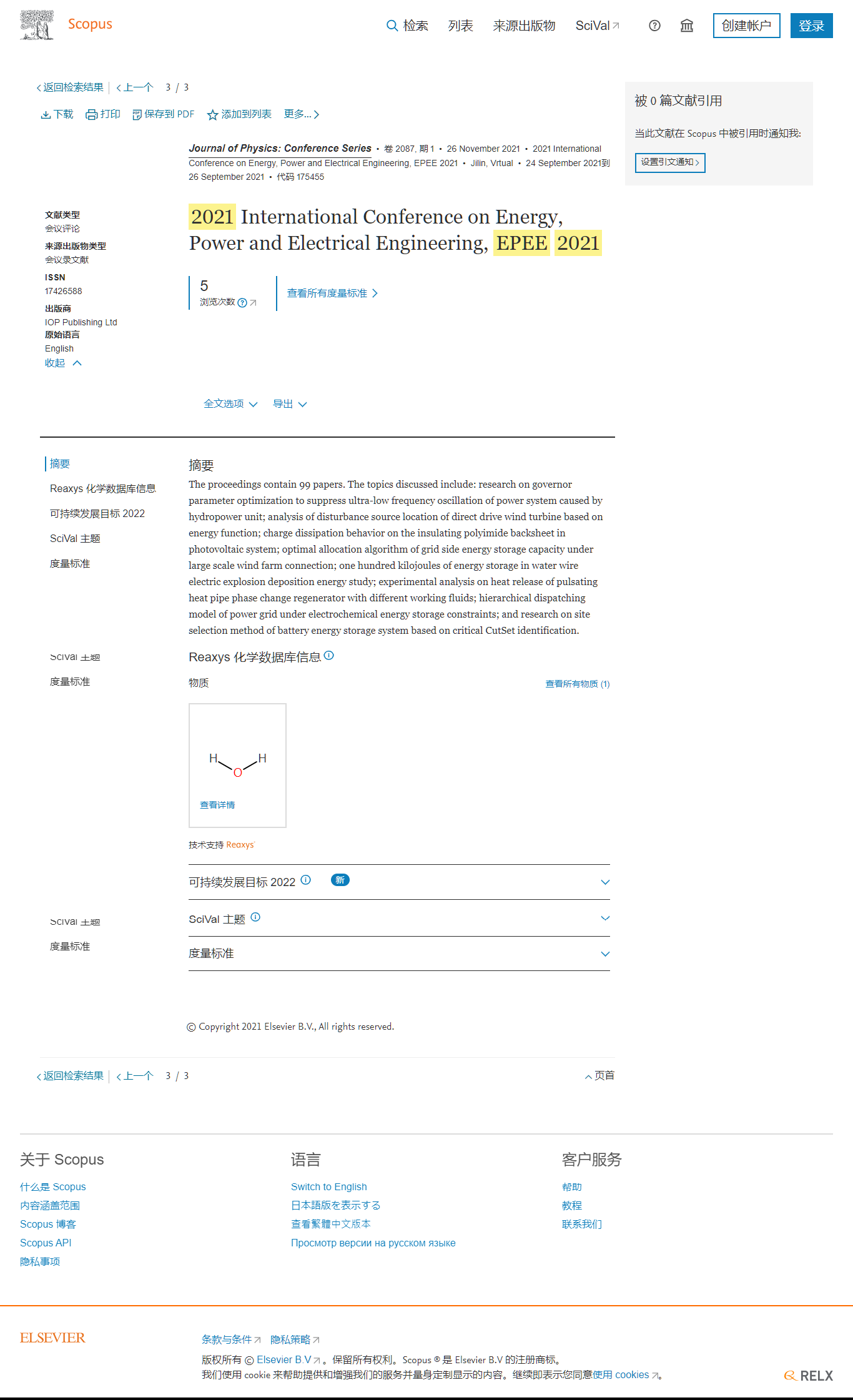◕ Energy Science and Engineering
◔ Wind power control
◔ Storage technology
◔ Renewable energy technologies and systems
◔ Hydrogen and fuel cell
◔ Green energy systems
◔ Green building materials
◔ Energy-saving technology
◔ Energy-efficient lighting products and technologies
◔ Energy security
◔ Energy equipment
◕ Power, Automation and Electrical Engineering
◔ Smart grid technology
◔ Precision automation
◔ Power system management
◔ Power system and automation
◔ Power machinery
◔ Power electronics and electric drive
◔ Motor and electrical
◔ Information automation
◔ HVAC, air conditioning and refrigeration
◔ High voltage and insulation technology
◔ Fluid machinery
◔ Engineering thermophysics
◕ Electronics Engineering
◔ Techniques of laser and applications of electro-optics
◔ Smart grid / power IC
◔ Simulation of propagation
◔ Signal processing
◔ Signal integrity design for high-speed digital systems
◔ Remote control and techniques of GPS
◔ Power electronics
◔ Modulation, coding, and channel analysis
◔ Microwave theory and techniques
◔ Microwave and millimeter circuit and antenna
◔ Integrated optics and electro-optics devices
◔ Electro-optical phenomena of semiconductors
◔ Electromagnetic and photonics
◔ Electric energy processing
◔ Computer relaying
◔ Circuits and electronics
◔ Battery management system
◔ Antenna and propagation
◔ Analysis of power quality and system stability
◔ Analog circuits and digital circuits







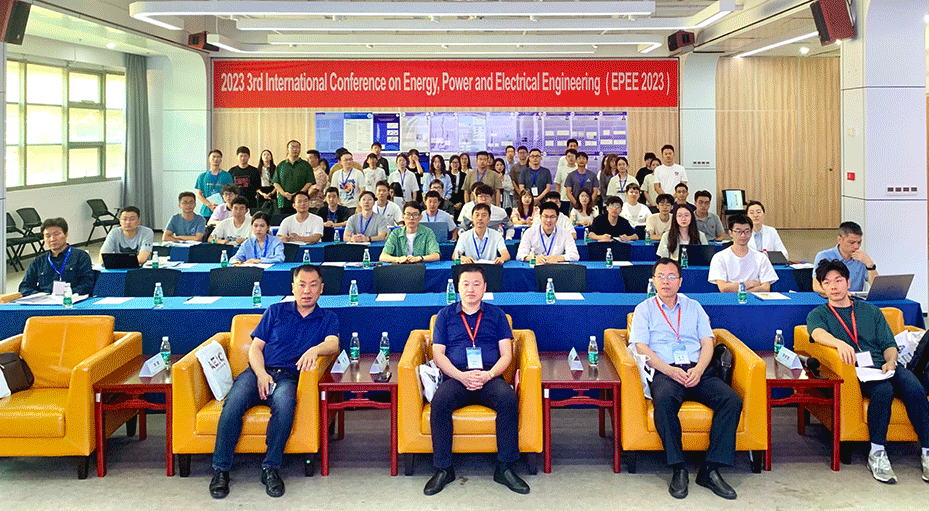
 The topics of interest include, but are not limited to:
The topics of interest include, but are not limited to: Please send the full paper(word+pdf) to Submission System :
Please send the full paper(word+pdf) to Submission System : 